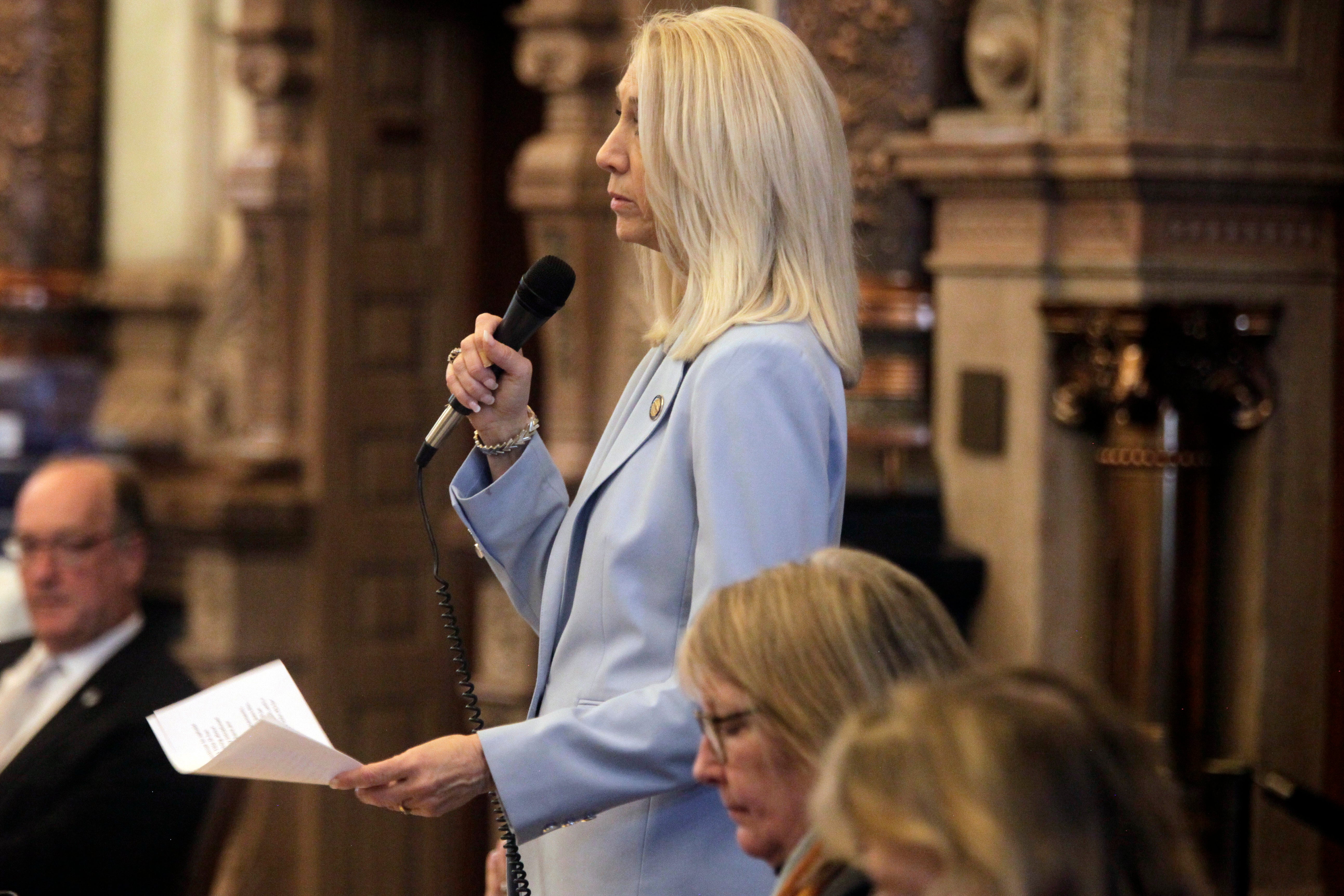Veto of Kansas bill on trans athletes sets up override fight
A Kansas bill banning transgender athletes in girls’ and women’s sports has been vetoed for the third year in a row

A Kansas bill banning transgender athletes from girls' and women's sports was vetoed by Democratic Gov. Laura Kelly for the third year in a row Friday, setting up a hotly contested fight in the Republican-controlled Legislature to override her.
Kelly's action was expected because of her two previous vetoes. Kansas Republicans made Kelly's vetoes a major issue in multiple television attack ads when she ran for reelection last year, winning narrowly.
Kelly said during the campaign that decisions about transgender athletes should be made by schools, doctors, families and local officials, and that the two bills she vetoed would have “created unnecessary new government mandates.” Kelly’s veto messages in 2021 and 2022 said the bills would have hurt the state’s business climate, and last year's message added that such proposals came only from "politicians trying to score political points.”
When lawmakers gave final approval to the bill last week, Jenna Bellemere, a 19-year-old transgender University of Kansas student, said, “It’s about socially isolating people, especially socially isolating trans kids.”
Republicans have more than the two-thirds majorities in both chambers needed to override a veto, but in 2021 and 2022, a few GOP moderates voted against overriding Kelly. The House and Senate votes on this year's bill suggest supporters could have just enough votes to prevail.
The measure would apply to girls' and women's K-12, club and college sports. If supporters can override Kelly's veto, Kansas would join 18 other states with such a law, including Iowa, Oklahoma and Texas.
The measure is among dozens of Republican proposals pushing back against transgender rights in statehouses across the U.S. Kansas has bills aimed at banning gender-affirming care for minors and preventing transgender men and women from using bathrooms, locker rooms and other facilities associated with their gender identities.
Kelly's veto came a day after Kentucky's Republican-dominated legislature approved a ban on gender-affirming care for minors and Iowa’s GOP-controlled Legislature approved a bill on school bathrooms.
In defending the legislation, Kansas House Speaker Dan Hawkins, a Wichita Republican, recently posted tweets endorsing a theory debunked by multiple studies that a “social contagion” has led to more people identifying as transgender.
He and other Republicans also have argued that banning transgender athletes will preserve fair competition and opportunities for girls and young women.
“This bill ensures we’re not moving backwards on 50 years of advances for female athletes,” Hawkins said in a statement this week.
Kansas officials and LGBTQ-rights advocates say only a handful of young transgender people participate in high school activities — and possibly only one transgender Kansas girl is on a sports team. Backers of the bill argue that the state should act before transgender athletes become more prevalent.
During her reelection campaign, Kelly aired a television ad that featured her looking into the camera and said, “Of course, men should not play girls’ sports. OK, we all agree there.”
Republicans said she was lying about her record, and they've repeatedly mentioned her statement since. LGBTQ-rights advocates understood the ad as saying men aren't playing women’s sports because transgender women are women.
The vote last week in the Senate was 28-11, giving backers one more than the two-thirds needed in the 40-member chamber to override a veto.
However, the House would vote first, and the vote there last month was 82-40. While supporters need 84 of 125 votes to override a veto, two Republicans who backed the bill were absent.
Last year, supporters were short of a two-thirds House majority, but in last year's elections, three Republicans who supported a ban replaced GOP lawmakers who'd voted against overriding Kelly's veto. Also, while no Democrats voted last year to override Kelly, freshman Democratic Rep. Ford Carr, of Wichita, voted for this year's bill.
Republican lawmakers in Kansas also have pursued a bill to revoke the state medical licenses of doctors providing puberty-blocking drugs, hormone therapy or surgery for transgender minors. It passed the Senate last month, but the House hasn't had a committee hearing.
Another Senate-passed bill would define male and female in Kansas law based on a person's anatomy at birth and declare that cisgender women and girls have a right to private spaces separate from men, such as bathrooms and locker rooms.
LGBTQ-rights advocates have said the measure not only bars transgender people from facilities associated with their gender identities but also erases them legally, along with gender-nonconforming and nonbinary people.
The bill's language also would prevent transgender people from changing birth certificates and driver's licenses to reflect their gender identities, though Kansas is under a 2019 federal court order to allow birth certificate changes.
The measure is before the House after one of its committees rewrote it this week to prevent it from applying to intersex people. Intersex describes people born with genitalia, chromosomes or reproductive organs not associated with typical definitions for males or females.
“We don't want to marginalize them anymore,” said Republican state Rep. Ron Bryce, a southeast Kansas doctor.
____
Follow John Hanna on Twitter: https://twitter.com/apjdhanna
Bookmark popover
Removed from bookmarks